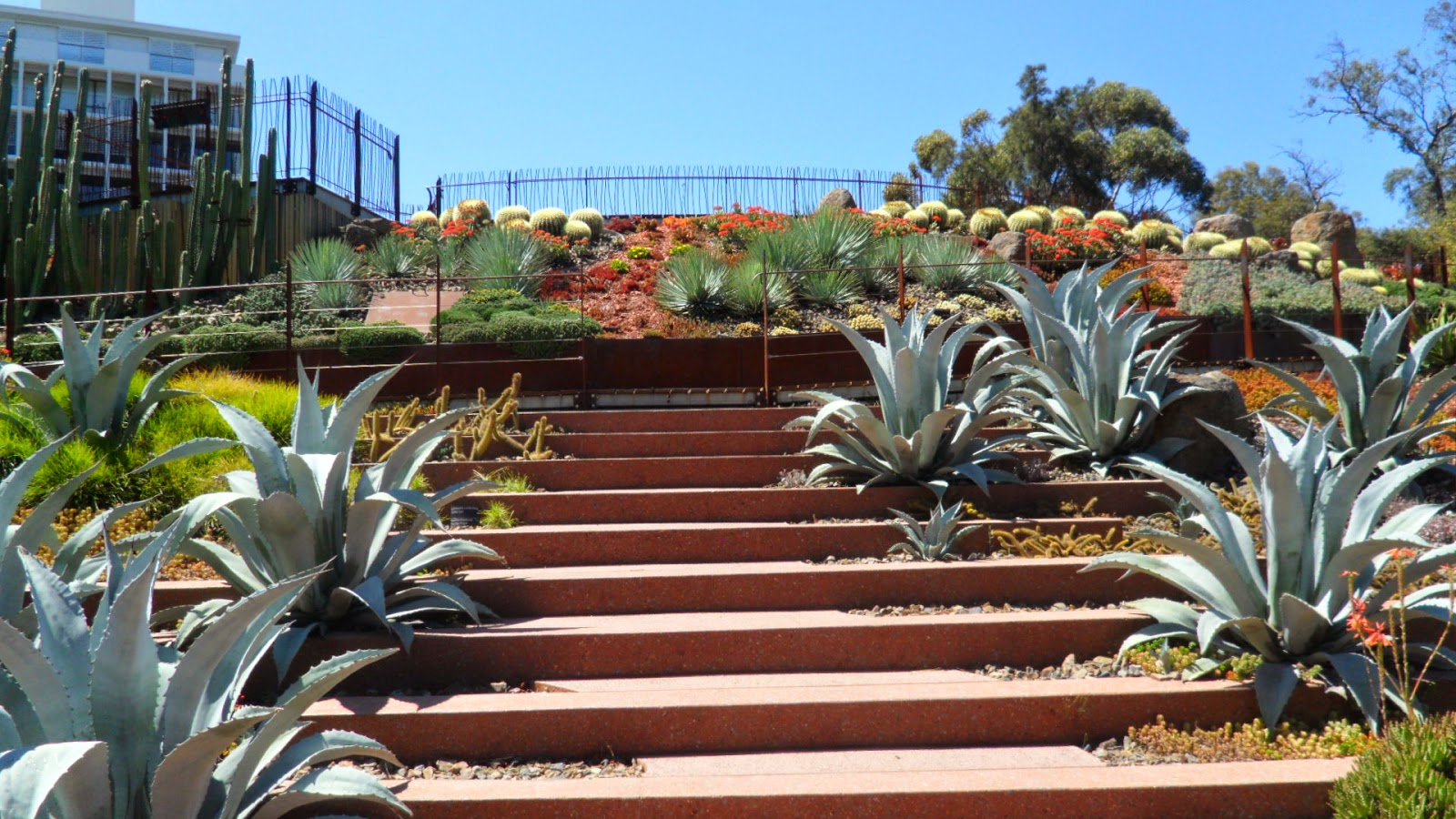The Royal Botanic Gardens has its own volcano! Guilfoyle's Volcano was built in 1873 and used for water storage. Then somehow we forgot about saving water until the long years of drought reminded us of the importance we needed to place on this precious commodity. It lay dormant for 60 years and now after its quite recent restoration in 2010 it can be seen in all its 'explosive' glory.
 |
| One of the entrances to Guilfoyle's Volcano |
|
|
 |
| Climb to the top through some wonderful dry climate plantings |
The Volcano is part of an initiative at the Gardens - the Working Wetlands. It really is a unique and rather wondrous place. The water coming into the Volcano reservoir comes from the beautiful ornamental lake and the lake water can be very high in nutrients. The floating islands help reduce this by planting water loving plants which grow prolifically and their roots hang like a curtain below the surface. The bacteria they produce removes the excess nutrients and makes the water cleaner (old nature is pretty clever - if we would only listen and learn from her). The floating islands also reduce evaporation. It's lovely to stand and watch as they slowly move around the top of the Volcano.
 |
| A 'sea' of floating islands and a wonderful view of the city in the distance |
 |
| Mr Tommy Tortoise climbing onto the island amongst the reeds |
William Guilfoyle - after whom the Volcano was named - was the second Director of the Gardens. He succeeded Ferdinand von Mueller who was appointed in 1857. Guilfoyle succeeded him in 1873. He is often
described as 'the master of landscaping' and it was his vision that shaped
the Gardens as they are seen today.
 |
| Thankyou Mr Mueller and Mr Guilfoyle |
You'll find Guilfoyle’s Volcano in the south-east corner of the Royal Botanic
Gardens Melbourne. (the closest corner to Richmond!) It easily accessible via C Gate (enter via Anderson
Street) and D Gate (enter via Birdwood Avenue). If you are passing then do pop in to see a remarkable creation. And a useful one.







No comments:
Post a Comment